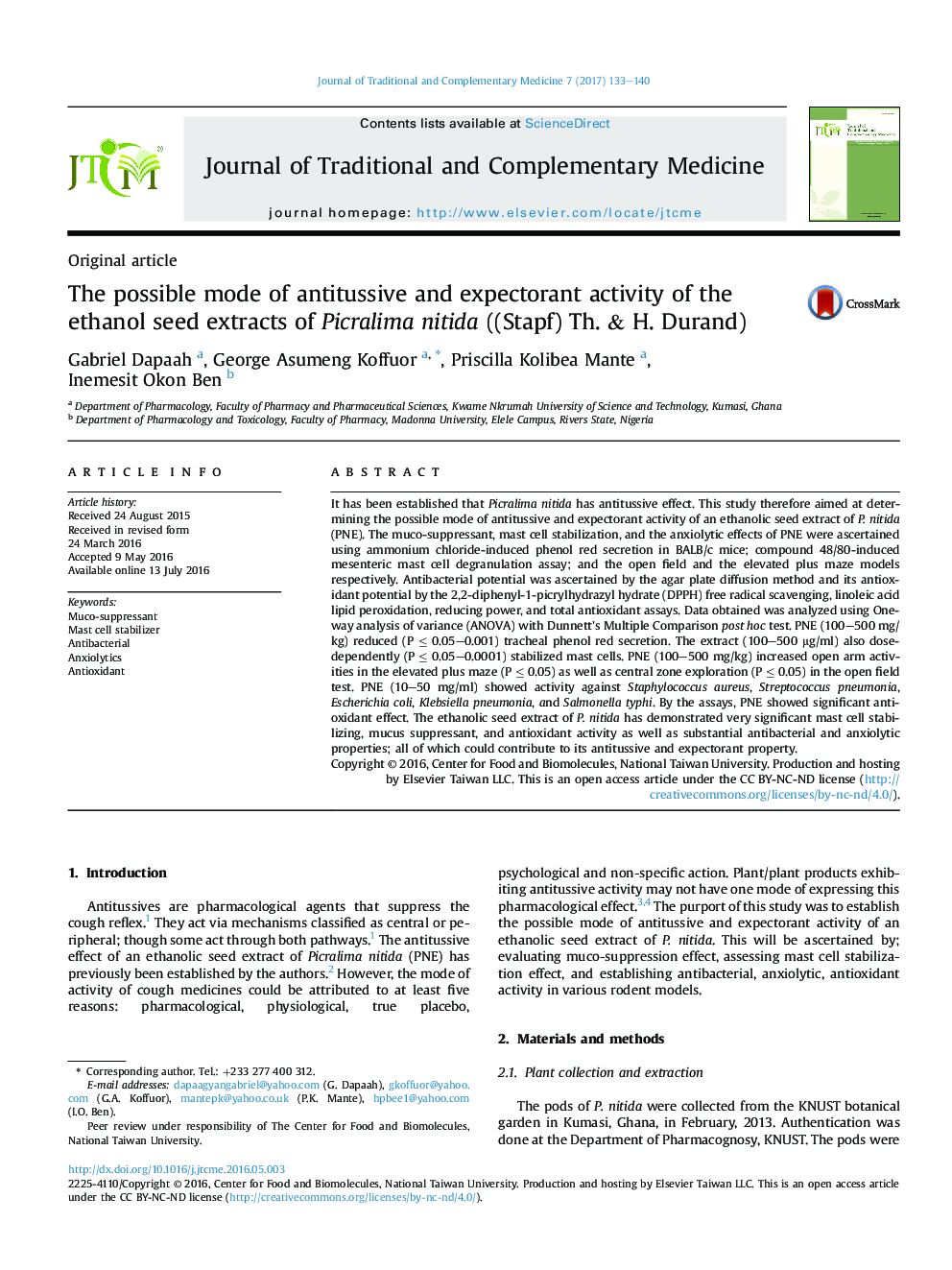| Article ID | Journal | Published Year | Pages | File Type |
|---|---|---|---|---|
| 5635444 | Journal of Traditional and Complementary Medicine | 2017 | 8 Pages |
It has been established that Picralima nitida has antitussive effect. This study therefore aimed at determining the possible mode of antitussive and expectorant activity of an ethanolic seed extract of P. nitida (PNE). The muco-suppressant, mast cell stabilization, and the anxiolytic effects of PNE were ascertained using ammonium chloride-induced phenol red secretion in BALB/c mice; compound 48/80-induced mesenteric mast cell degranulation assay; and the open field and the elevated plus maze models respectively. Antibacterial potential was ascertained by the agar plate diffusion method and its antioxidant potential by the 2,2-diphenyl-1-picrylhydrazyl hydrate (DPPH) free radical scavenging, linoleic acid lipid peroxidation, reducing power, and total antioxidant assays. Data obtained was analyzed using One-way analysis of variance (ANOVA) with Dunnett's Multiple Comparison post hoc test. PNE (100-500 mg/kg) reduced (P â¤Â 0.05-0.001) tracheal phenol red secretion. The extract (100-500 μg/ml) also dose-dependently (P â¤Â 0.05-0.0001) stabilized mast cells. PNE (100-500 mg/kg) increased open arm activities in the elevated plus maze (P â¤Â 0.05) as well as central zone exploration (P â¤Â 0.05) in the open field test. PNE (10-50 mg/ml) showed activity against Staphylococcus aureus, Streptococcus pneumonia, Escherichia coli, Klebsiella pneumonia, and Salmonella typhi. By the assays, PNE showed significant antioxidant effect. The ethanolic seed extract of P. nitida has demonstrated very significant mast cell stabilizing, mucus suppressant, and antioxidant activity as well as substantial antibacterial and anxiolytic properties; all of which could contribute to its antitussive and expectorant property.
Graphical abstractDownload high-res image (184KB)Download full-size image
